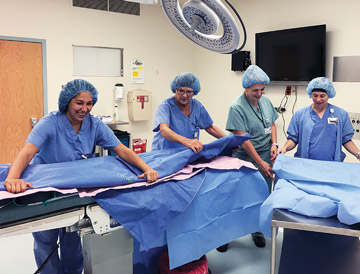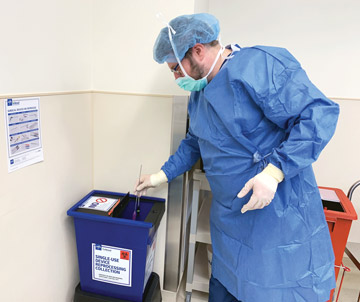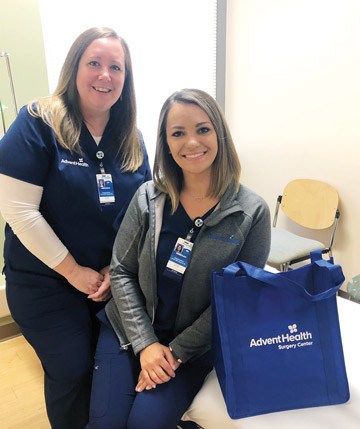From blue wrap to plastic film to white cardboard, ORs produce millions of mounds and millions of pounds of waste per year. Rather than cart it away to landfills, Monongahela Valley (Pa.) Hospital recycles its rubbish into park benches and blue wrap blankets. This trash-to-treasure mentality earned the community hospital in western Pennsylvania this year's OR Excellence Award for Environmental Stewardship.
"When it comes to environmentally friendly ideas, everybody is encouraged to think outside the box," says Darcie Opalko, MBA, MS, RN, CNOR, CSSM, the director of surgical services at Monongahela Valley.
With this team-based, anything-goes approach to going green, no project is too big or too small, and everybody's ideas get due consideration, says Ms. Opalko. As a result, Monongahela reduces, reuses and recycles in a number of novel ways.
- Plastic wrap park benches. Through a partnership with NexTrex, Trex Company's retail recycling program, the hospital recycles the plastic outer wrap that covers virtually every surgical instrument and supply. Already, the composite decking leader has made 2 public park benches from Monongahela's plastic wrap. How it works: NexTrex provides the hospital with labeled recycle bins to collect the plastic wrap. After the hospital accumulates 500 pounds (that's 40,500 plastic films and bags!), NexTrex collects the wrap and creates a public bench that is placed in an area of the hospital's choosing. The hospital collects around 5 pounds of plastic wrap per week — "maybe a little more if we have a few consecutive busy days," says Ms. Opalko — so it needs 100 weeks to save enough for a bench.
.svg?sfvrsn=be606e78_3)



.svg?sfvrsn=56b2f850_5)